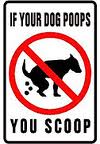While visiting with some friends today at a wonderful pet boutique, one of our conversations centered on dog fights and how to break them up. We’ve certainly seen our share of dog fights throughout the years and we’ve heard about even more fights that happened at home or in dog parks. They happen and they are scary. And for some reason, no matter how many times we are told not to, most of us will try to break up a dog fight by pulling at collars or at the scruff of the neck. Yep, we’ve even done it and we’re trained in how to break up dog fights. It’s instinct.
But rather than talk about how to break up a dog fight, I’m more interested in actually preventing the fight in the first place because so often, fights can be prevented before they start. (Trainer friends - feel free to add or correct anything).
1. Be honest. Be honest with yourself and be honest about your dog. A client dropping off her dog today warned another client that her dog bites. She wasn’t embarrassed and she didn’t mince words. She kept her dog on leash and warned others. The breed? A Bichon. We’ve had other clients who neglect to tell us about the time that Rover pinned another dog and it escalated from there. Or sometimes they tell us, but it’s always couched in excuses: He didn’t really bite, it was just a playful nip as the person walked away. He was just upset and didn’t want the person to leave. If you are honest about your dog and his tendencies (Does he “stalk” people or other animals? Is she a bit rough at times? Has he growled at other dogs in a menacing way for normal dog behavior?), then you will make better choices for him. We don’t purposely set our kids up for failure, two or four-legged.
2. Think. Dogs are pretty awesome and we love to show them off and bring them lots of places. However, I don’t bring my kids everywhere, particularly when I know it’s going to be hard for them to behave. Why would I set them up to fail like that? (See point one above). I try to do the same for my dogs, by bringing them to places where I am pretty confident they will succeed. For example, Scout is super aggressive with other dogs over food. Because of this, I wouldn’t bring her to an outdoor cafe where there might be other dogs who might make her feel she has to protect those tasty tidbits that fall like manna from heaven, nor would I bring her to the feed store with me. Pecan thinks every dog on this planet wants to be his friend, so dog parks are out for him. He’s just doesn’t have any dog sense to know better, so a controlled environment is the only place he can play.
3. Understand dog behavior. Dogs are not people even though we like to compare similarities. Some of the most serious dog bites I’ve ever seen have been inflicted on the owner trying to break up a fight. Usually, their own dog ends up biting them. At that moment, the dog isn’t seeing the owner. She is in fight mode and isn’t seeing much of anything. Even your loving voice cannot break that “fight” concentration.
Read about dog behavior. Take a class or two and learn specifics about your dog’s behavior. And watch how that behavior can change over time as your pet ages. Scout used to be fine with other dogs visiting our house. Now, she is too old or too protective to have dog friends over anymore. We have dogs who visit us at the kennel who, as young puppies, couldn’t stand to be without a friend overnight, but with age have decided that they prefer to sleep alone. Finally, practice. Practice recall if you let your dog off-leash. Practice basic commands.
4. Prepare. Just like a practice fire drill at home, knowing what you have to do and thinking through it ahead of time really can increase the likelihood that you will make smart decisions if you are ever faced with a dog fight. While you can’t simulate a dog fight easily, you can read the literature. Practice the wheelbarrow move on your dog and see how it works. No, it probably won’t be comfortable for her, but it also won’t hurt her. If you walk your dog or visit a dog park regularly, pack a citronella spray with your poop bags. Like a dog version of mace, and much friendlier, it can sometimes break that concentration long enough to separate the dogs.
A truly prepared dog owner will also think through the what-ifs of a dog fight. “If my dog instigates a fight, am I responsible for the other dog’s vet bills?” or “If something serious happens to my dog in a fight, can I afford treatment?” “If my dog misbehaves, who can I call?” Many times, it is nice to already be established with a trainer who knows you and your dog who can help answer and deal with such issues.
I hope you never actually have to be involved in a dog fight. While many end with just a few tufts of hair missing, they are scary and can sometimes end with scary results. If you have better advice, or some different advice, please share it. If you have a personal story, please share it. We can learn from each other. Let’s work together to keep ourselves and our dogs safe!







